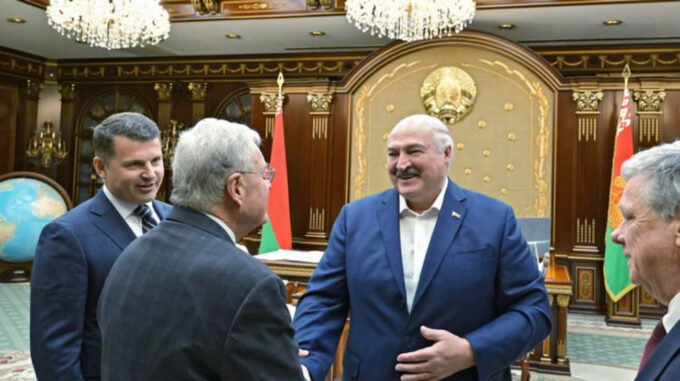Alexander Lukashenko Hosted Kellogg’s Special Envoy in Minsk: Conversation Amid International Diplomatic Tension

An important diplomatic meeting took place at the presidential residence in Minsk: Belarusian leader Alexander Lukashenko received the U.S. President's Special Envoy, renowned diplomat, and former U.S. envoy Keith Kellogg. This high-level political and public consultation became one of the first official high-level encounters between Minsk and Washington in recent times and drew significant attention from the international community. According to information released by Lukashenko’s press service, the entourage of the foreign guest arrived at the capital’s residence the day before, and the meeting itself was held in a friendly and open atmosphere. The meeting began with a casual informal greeting when Lukashenko welcomed Kellogg with the words: “What a guy, hello, dear.” This emphasized that, despite differences in political positions, mutual respect remains among the leaders. In his speech before the negotiations, the Belarusian head of state expressed hope for a sincere, open, and constructive dialogue. "Very pleased, Mr. General, to meet with you. I very much hope that our conversation will be honest and frank. Otherwise, what's the point of gathering at all? If we start scheming and being cunning with each other, we won't achieve any results," Lukashenko said, highlighting the importance of openness in diplomatic negotiations. It is worth noting that the arrival of the high-ranking American diplomat was quite controversial. His visit sparked widespread discussion not only within regional circles but also in global diplomatic circles, as it was the first such meeting with a senior U.S. official in recent times. Kellogg, in his speech during the meeting, hinted at the potential renewal of dialogue between Washington and Minsk, emphasizing the importance of seeking ways for dialogue, mutual understanding, and the possibility of establishing cooperation in the future. Overall, this meeting sent an important signal to the international community. On one hand, it indicates the readiness of both sides to engage in dialogue and seek compromises; on the other hand, it opens new possibilities for cooperation, which had previously been complicated by political and economic sanctions, neglect, or lack of trust. Some analysts believe this step could mark the beginning of a gradual normalization of more constructive relations between the U.S. and Belarus, though questions remain about further actions and specific decisions that might arise as a result of ongoing dialogue. Nevertheless, the question remains how quickly and effectively diplomatic processes will shift from standstill and whether this contact will contribute to reducing regional tensions and improving relations between Minsk and Washington. It is expected that this meeting represents a first step in a new format of interaction between the countries and potentially paves the way for a more stable and predictable political climate in Eastern Europe and Central Asia. Overall, the high-level visit of the American diplomat, marked by particular caution and willingness to find common ground, has sparked many discussions and will continue to be analyzed and studied within the context of geopolitical trends. The prospects for implementing potential agreements remain unclear, but this diplomatic move generally signals a more open trend in interstate relations, which could have far-reaching consequences for regional and global security.

